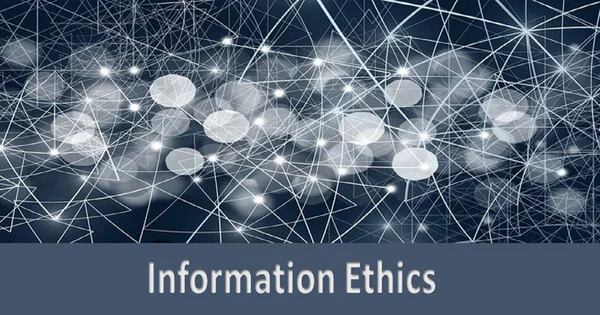Information ethics is a branch of applied ethics that deals with the ethical issues arising from the use of information and communication technologies (ICTs). It examines the ethical implications of the creation, collection, dissemination, and use of information and digital technologies in various contexts, including business, government, education, healthcare, and personal life.
Some of the key issues in information ethics include privacy, security, access to information, intellectual property rights, censorship, online identity, cyberbullying, and the digital divide. Information ethics also considers the ethical responsibilities of individuals, organizations, and governments in relation to the development and use of ICTs.
Information ethics is important because the increasing use of ICTs has significant ethical implications for individuals, organizations, and society as a whole. As technology continues to evolve, it is essential to ensure that it is developed and used in a way that is ethical, responsible, and respectful of human values and rights.
“The branch of ethics that focuses on the relationship between the creation, organization, dissemination, and use of information, and the ethical standards and moral codes governing human conduct in society,” is how information ethics is defined.
It investigates the moral implications of using information as a resource, a product, or a target. It provides a critical framework for considering moral issues relating to informational privacy, moral agency (e.g., whether artificial agents can be moral), new environmental issues (particularly how agents should behave in the infosphere), and problems arising from the information life cycle (creation, collection, recording, distribution, processing, and so on) (especially ownership and copyright, digital divide, and digital rights). It is critical to understand that librarians, archivists, and information professionals, among others, recognize the importance of knowing how to disseminate appropriate information as well as being accountable for their actions when dealing with information.
Information ethics also deals with the impact of information technology on society, culture, and human values. It raises questions about the ethical use of information technology and the potential harm it can cause, such as the digital divide, social isolation, cyberbullying, and other forms of online harm.
Information ethics is interdisciplinary and draws on philosophy, computer science, law, sociology, psychology, and other fields. It is concerned with the ethical and social implications of information technology and seeks to promote ethical behavior in the development and use of information systems.
















